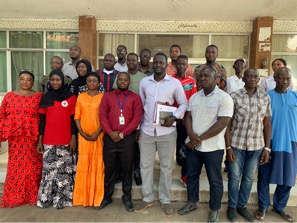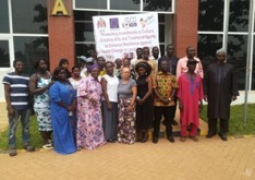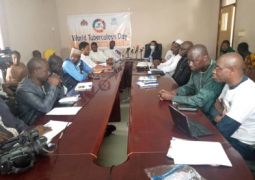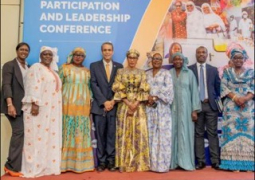
The stakeholders meeting which was held in Banjul, focused on resource mobilisation, community engagement, and strategy implementation within the Greater Banjul Area and its surrounding regions.
Officials said the government of The Gambia is committed to reducing the spread of HIV/AIDS in the country.
The government, they said, has taken critical steps to integrate the fight against HIV/AIDS into its national development agenda.
Through the National AIDS Secretariat (NAS), the government has decentralised its response mechanisms by establishing Municipal and Regional AIDS Coordinators across all the six regions.
The move, they went on, aims to streamline efforts to combat the ‘epidemic’ at both the regional and municipal levels.
Through this initiative, the municipal AIDS committee, led by the deputy Lord mayor of the Kanifing Municipal Council (KMC), has been mobilising stakeholders across the Western One Health Region, which includes KMC, Banjul City Council (BCC), and Kombo North.
It is aimed to devise strategies and implement actions that will curb the spread of HIV within these densely populated areas.
Abdou Aziz Dabakh Gaye, the deputy Mayor of Banjul City Council who was speaking at the forum held at the BCC, expressed the council’s commitment to supporting HIV/AIDS awareness and prevention efforts.
The national response to HIV/AIDS which is driven the government, he said, has made great strides, saying: “Through continuous collaboration and collective action, we can sustain this momentum especially within the Greater Banjul Area.”
“Under the leadership of Mayor Rohey Malick Lowe, BCC is also committed to mobilising resources and coordinating impactful HIV response efforts across Banjul, KMC, and Kombo North,” he declared.
Gibril Sanneh, the chairperson of the municipal AIDS committee, urged local councils, particularly BCC to increase their involvement in HIV awareness campaigns.
The BCC deputy mayor claimed that “urban areas remain vulnerable to the spread of HIV/AIDS due to its dense populations.”
Emphasising the role local councils play in promoting public health, Sanneh said: “By supporting awareness initiatives, BCC can empower its residents with crucial knowledge about prevention, testing, and treatment especially among vulnerable groups such as youth and marginalised populations,” he postulated.
He called for greater collaboration between local councils, health agencies and community organisations, adding: “This will go a long way in enhancing resource mobilisation, strengthen policy development and foster a supportive environment for those affected by HIV.”
He added: “With the significant commitment of the council, it can significantly reduce transmission rates and improve the overall health and well-being of the city’s residents.”
Lamin Badjie, monitoring and evaluation specialist at the National AIDS Secretariat, said: “HIV affects everyone either directly or indirectly. Therefore, there is a need for widespread awareness across offices, households, and communities. We must work together as one force in order to effectively combat HIV/AIDS.”




